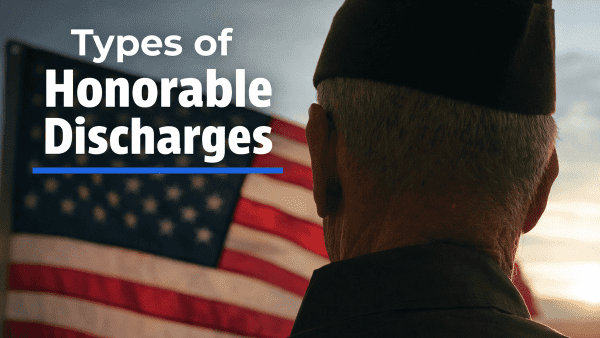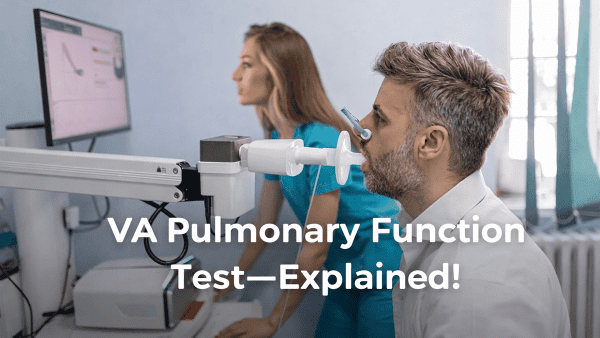Looking for Expert-Level VA Claim Answers?📱Call Us Now! 737-295-2226
Female Sexual Arousal Disorder (FSAD) is a serious medical condition that can deeply affect a veteran’s well-being, relationships, and mental health.
Many female veterans develop FSAD as a result of military sexual trauma (MST), PTSD, or service-connected medications—but don’t realize they may qualify for VA disability benefits.
In this post, we’ll break down everything you need to know about FSAD VA ratings, how to establish service connection, and what benefits (including Special Monthly Compensation) may be available to you.
Table of Contents
Summary of Key Points
- Understanding FSAD: Female Sexual Arousal Disorder (FSAD) affects women’s sexual function and quality of life, often linked to conditions like PTSD, MST, and depression.
- Establishing Service Connection: Veterans need a current FSAD diagnosis, proof of an in-service event, and a nexus between them to qualify for VA benefits; secondary connections may apply if FSAD is aggravated by another service-related condition.
- VA Rating Process: FSAD is usually rated at 0% under diagnostic code 7632 in the Schedule of Ratings for gynecological conditions and disorders of the breast, unless there’s genital damage, but veterans may qualify for Special Monthly Compensation (SMC) for the loss of use of a “creative organ.”
Understanding Female Sexual Arousal Disorder (FSAD)
Definition and symptoms
Female Sexual Arousal Disorder (FSAD) is a type of sexual dysfunction characterized by the continual or recurrent physical inability of a woman to accomplish or maintain an adequate lubrication-swelling reaction during sexual intercourse
It’s considered a physiological disability that requires confirmation by a medical doctor.
Symptoms of FSAD include absent or reduced interest in sexual activity, reduced or no initiation of sexual activity, and absent or reduced sexual excitement or pleasure during most sexual encounters. Women with FSAD may also experience a lack of genital or nongenital sensations during sexual activity.
Prevalence among female veterans
The prevalence of sexual disorders among women veterans is estimated to be between <1% to 2.4%. However, these figures likely underrepresent the issue due to a lack of routine screening and underreporting. As women service members and veterans represent the fastest-growing cohort of service members and report lower sexual function compared to their civilian counterparts, understanding FSAD has become a critical issue.
Impact on quality of life
FSAD can significantly impact the quality of life for affected individuals. The condition can lead to decreased libido, arousal difficulties, and relationship challenges.
The impact of FSAD on quality of life extends beyond sexual satisfaction and can contribute to depression, anxiety, and other mental health concerns. These psychological effects may further exacerbate the symptoms of FSAD, creating a negative feedback loop that affects overall well-being.
For female veterans, FSAD may be associated with other service-connected conditions such as post-traumatic stress disorder (PTSD), depression, or military sexual trauma (MST). These co-occurring conditions can compound the effects of FSAD on quality of life, making it important for healthcare providers to address both the physical and psychological aspects of their treatment approaches.
Establishing Service Connection
The VA recognizes FSAD as a service-connected disability, offering benefits to those affected.
Required evidence
To establish service connection for Female Sexual Arousal Disorder (FSAD), veterans must provide specific evidence to support their claim.
To prove service connection and get VA disability, you need three things:
- A current diagnosis of FSAD from a medical professional.
- Evidence of an in-service injury, illness, or event that caused your condition.
- A nexus (or link) between the in-service event, injury, or illness in your military service and your FSAD.
Veterans seeking VA disability should submit their DD214 or other separation documents, service treatment records, and any medical evidence related to their condition, such as doctors’ reports and test results.
Lay evidence, including written support statements from the veteran or individuals familiar with their condition, can also be submitted to support the claim.
Direct service connection
For direct service connection, veterans must prove three key elements: a current FSAD diagnosis, an in-service event or injury, and a causal relationship between the present disability and the in-service occurrence. This connection can be established through medical records, service records, or medical opinions from healthcare providers.
Veterans may need to show that they experienced extreme stress or exposure to chemical agents during their service, which are known risk factors for developing FSAD.
It’s important to note that FSAD symptoms may not have been diagnosable or recorded during service, especially if they occurred many years ago. In such cases, veterans can explain in their claim why their service treatment records may not contain evidence of FSAD.
Secondary service connection
Secondary service connection for FSAD can be established when the condition is caused or aggravated by another service-connected disability. This approach requires evidence of a current FSAD diagnosis, a service-connected disability, and a medical link between the two conditions.
FSAD can be secondary to several conditions commonly associated with military service, such as depression, anxiety, and post-traumatic stress disorder (PTSD). For instance, if a veteran has service-connected PTSD stemming from military sexual trauma (MST), they may be eligible for an FSAD VA rating secondary to PTSD.
Additionally, side effects from medications used to treat service-connected conditions, such as antidepressants or blood pressure medications, can negatively affect sexual function. In such cases, FSAD could be connected on a secondary basis.
To support a secondary service connection claim, veterans should provide medical evidence or opinions that establish a link between their service-connected condition and FSAD. This evidence is crucial in demonstrating that FSAD is at least as likely as not caused or aggravated by the primary service-connected disability.
How the VA Rates FSAD
FSAD VA rating criteria
The VA rating process for Female Sexual Arousal Disorder (FSAD) has undergone significant changes in recent years. As of May 13, 2018, a new rating schedule for gynecological conditions and disorders of the breast became effective, which included the addition of FSAD.
Under the current VA rating criteria, service-connected FSAD is typically assigned a 0% VA rating unless there is physical damage to the genitals. In cases where such damage exists, the VA determines the rating according to the appropriate diagnostic codes for the affected body parts. This approach ensures that both men and women veterans are evaluated equally for similar conditions.
VA Special Monthly Compensation (SMC)
Veterans with service-connected FSAD may be eligible for additional compensation through Special Monthly Compensation (SMC). SMC is a higher rate of compensation paid to veterans with certain needs or disabilities.
Even though FSAD is only rated at 0%, the VA can still provide compensation if you meet the requirements for SMC.
Additionally, a 0% VA rating still offers several benefits.
SMC for FSAD is based on the loss of use of a “creative organ,” which usually means an injury or condition that leads to sterility or infertility.
If you experience this loss of use, you may be eligible for monthly compensation under the SMC-K category.
Related: 2025 SMC Rates and Pay Charts
Potential challenges in the rating process
The VA rating process for FSAD can present several challenges for veterans. One obstacle is the requirement for a current diagnosis of FSAD, an in-service event or injury, and a medical nexus linking the two. This can be particularly difficult for veterans who may not have reported symptoms during their service or those whose condition developed gradually over time.
Another potential challenge is the need for a Compensation & Pension (C&P) examination. During this exam, a VA gynecologist or healthcare professional assesses the cause and severity of the veteran’s FSAD. Some veterans may find this process uncomfortable or invasive, especially those with a history of MST.
Additionally, the 0 percent rating typically assigned to FSAD unless there is physical damage to the genitals has been a point of contention for some veterans. This rating may not adequately reflect the impact of FSAD on a veteran’s quality of life and daily functioning.
VA Benefits for FSAD
To get VA benefits for Female Sexual Arousal Disorder (FSAD), veterans should focus on gathering comprehensive medical evidence. This includes obtaining detailed medical records related to sexual arousal disorder, including notes from your healthcare professional(s).
It’s crucial to demonstrate how FSAD impacts not just sexual function but also social interactions and emotional well-being. Veterans should be prepared to discuss intimate details about female sexual dysfunction during their C&P exam, including issues like vaginal contact discomfort or severe arousal problems that affect relationships and quality of life.
Conclusion
Understanding the VA rating process for Female Sexual Arousal Disorder has a significant impact on veterans seeking proper VA benefits, compensation, and support.
Gathering strong medical evidence, exploring secondary service connections, and understanding the appeal process are crucial steps to take. By taking these actions, you can ensure you receive the support and benefits you rightfully deserve for the impact FSAD has on your life.
Related Guides
VA Disability Benefits for Gynecological Conditions
Military Sexual Trauma (MST)
Increasing Your VA Rating for Depression
YOU SERVED. YOU DESERVE. We Got Your Six!

- VA Claims Insider is the #1 most trusted name in VA disability claims.
- Work directly with a VA claims coach who can educate you throughout the claims process.
- 25,000+ disabled veterans have served in our membership programs since 2016.
- 30% average rating increase for veterans who complete our #1-rated Elite program.
- 4.7/5.0 average rating out of 5,500+ total reviews; over 4,500 5-star reviews.
FAQs
What is Female Sexual Arousal Disorder (FSAD)?
Female Sexual Arousal Disorder (FSAD) is a type of sexual dysfunction where a woman has trouble self-lubricating enough for sexual intercourse. This issue is very common after traumatic events, especially those involving military sexual trauma (MST). Other hormonal and physical factors can also contribute to FSAD.
What Conditions Commonly Cause FSAD?
Some of the conditions that can lead to FSAD in female veterans include:
Anxiety, Military Sexual Trauma (MST), Post-Traumatic Stress Disorder (PTSD), Depression, Mental health medications, Chronic pain, Lumbar strain, Lumbar disc degeneration, Obesity, Diabetes, Heart conditions, and Vascular conditions.
What is the FSAD VA rating?
The VA rates FSAD under diagnostic code 7632 in the Schedule of Ratings for gynecological conditions and disorders of the breast. Currently, FSAD is assigned a non-compensable rating of 0%. However, veterans with FSAD may be eligible for special monthly compensation (SMC) for loss of use of a creative organ related to FSAD.
Are there any additional benefits available for veterans with FSAD?
While FSAD itself is typically assigned a 0% rating, veterans may be eligible for Special Monthly Compensation (SMC) at the K level.
How can I establish service connection for FSAD?
To establish service connection for FSAD, veterans need to prove three key elements:
1. A current diagnosis of FSAD from a medical professional
2. Evidence of a disabling injury, illness, or event that occurred during military service
3. A link between the in-service event and the current FSAD diagnosis
Can FSAD be connected to other service-connected conditions?
Yes, FSAD can be established as a secondary service connection if it results from another service-connected condition. For example, if a veteran has service-connected PTSD stemming from military sexual trauma (MST), they may be eligible for an FSAD VA rating secondary to PTSD.
Is there a link between military sexual trauma (MST) and FSAD?
Yes, there is a connection between MST and FSAD. Military sexual trauma is prevalent among veterans, especially female veterans, and is closely associated with symptoms of sexual dysfunction, including FSAD. Related: Military Sexual Trauma Veteran’s Guide
What evidence do I need to support my FSAD claim?
To support an FSAD claim, veterans should provide: Medical records and reports from treating healthcare professionals, military service records, evidence of current disability (typically in the form of a medical report), and documentation linking the in-service event to the current FSAD diagnosis
Can I appeal an unfavorable decision on my FSAD claim?
Yes, veterans have the right to appeal unfavorable decisions regarding their FSAD claims.
How does the VA evaluate FSAD during a C&P examination?
During a C&P exam for FSAD, a VA gynecologist or healthcare professional assesses the cause and severity of the veteran’s condition. Veterans should be prepared to discuss intimate details about their sexual dysfunction, including issues like vaginal contact discomfort or severe arousal problems that affect relationships and quality of life.
Can medications for other service-connected conditions affect my FSAD claim?
Yes, side effects from medications used to treat service-connected conditions, such as antidepressants or blood pressure medications, can negatively affect sexual function. This can potentially establish a secondary connection between FSAD and the primary service-connected condition for which the medication is prescribed.
Author

Eric Webb
Eric has written and worked in the field of Veterans Disability since 2020 and enjoys writing educational content for the veteran population. His prior work has been published in the Official Journal of the American College of Sports Medicine (ACSM). He holds a Degree in Health and Exercise Science.



